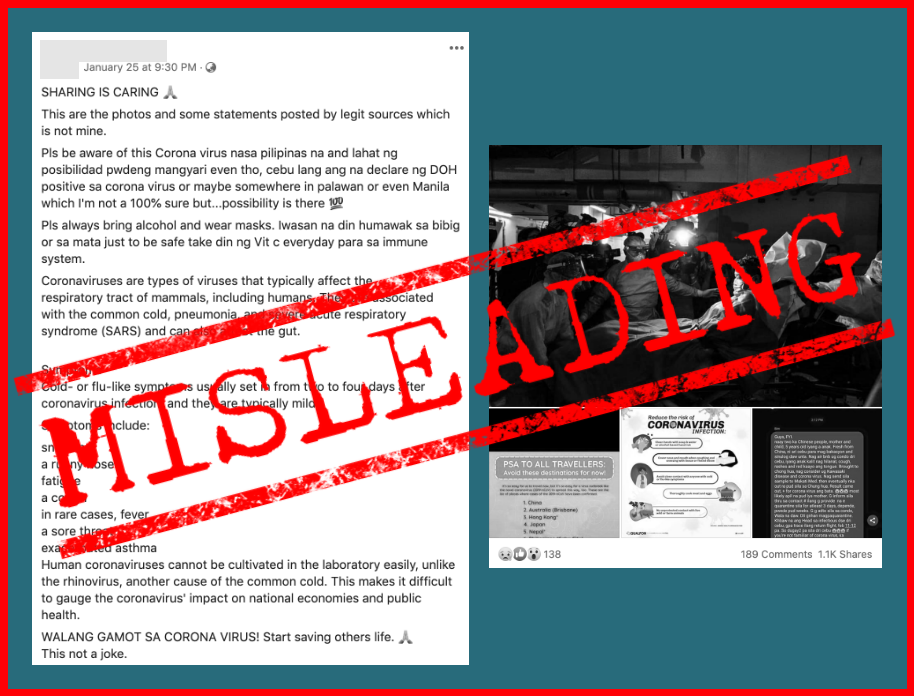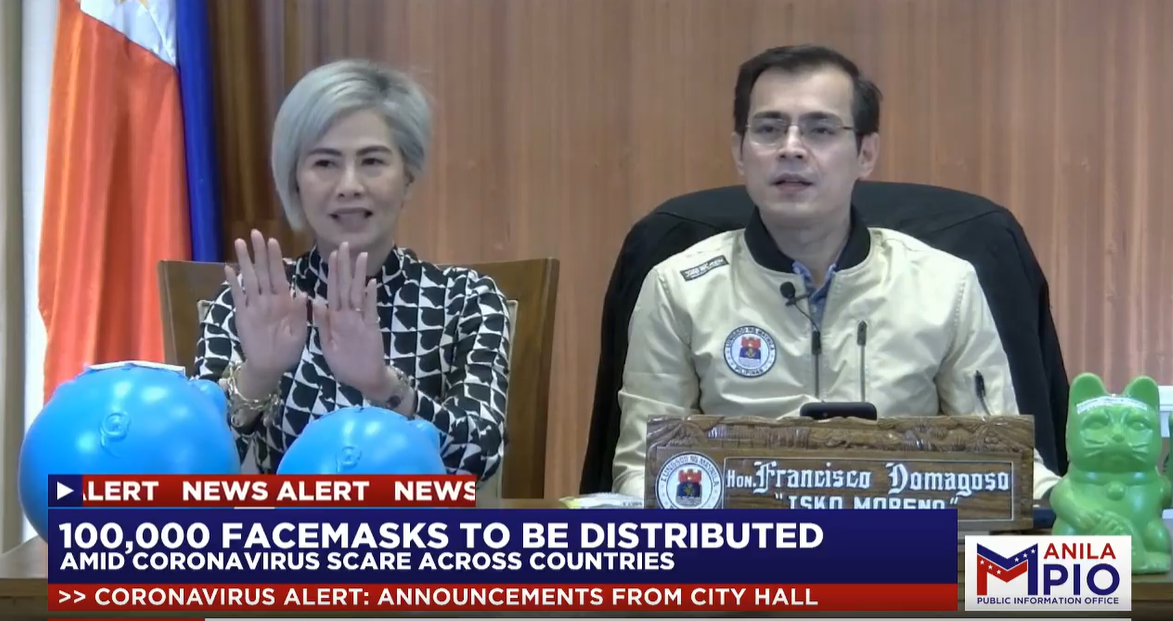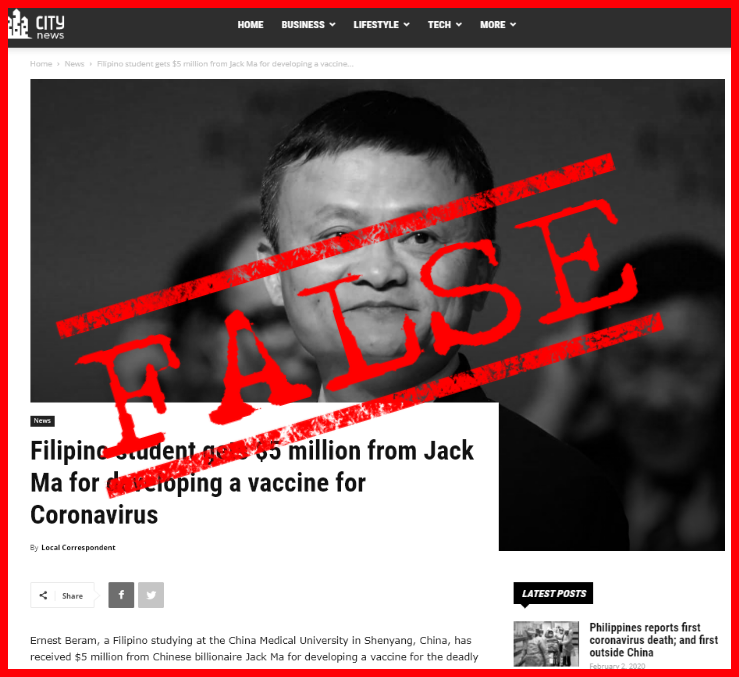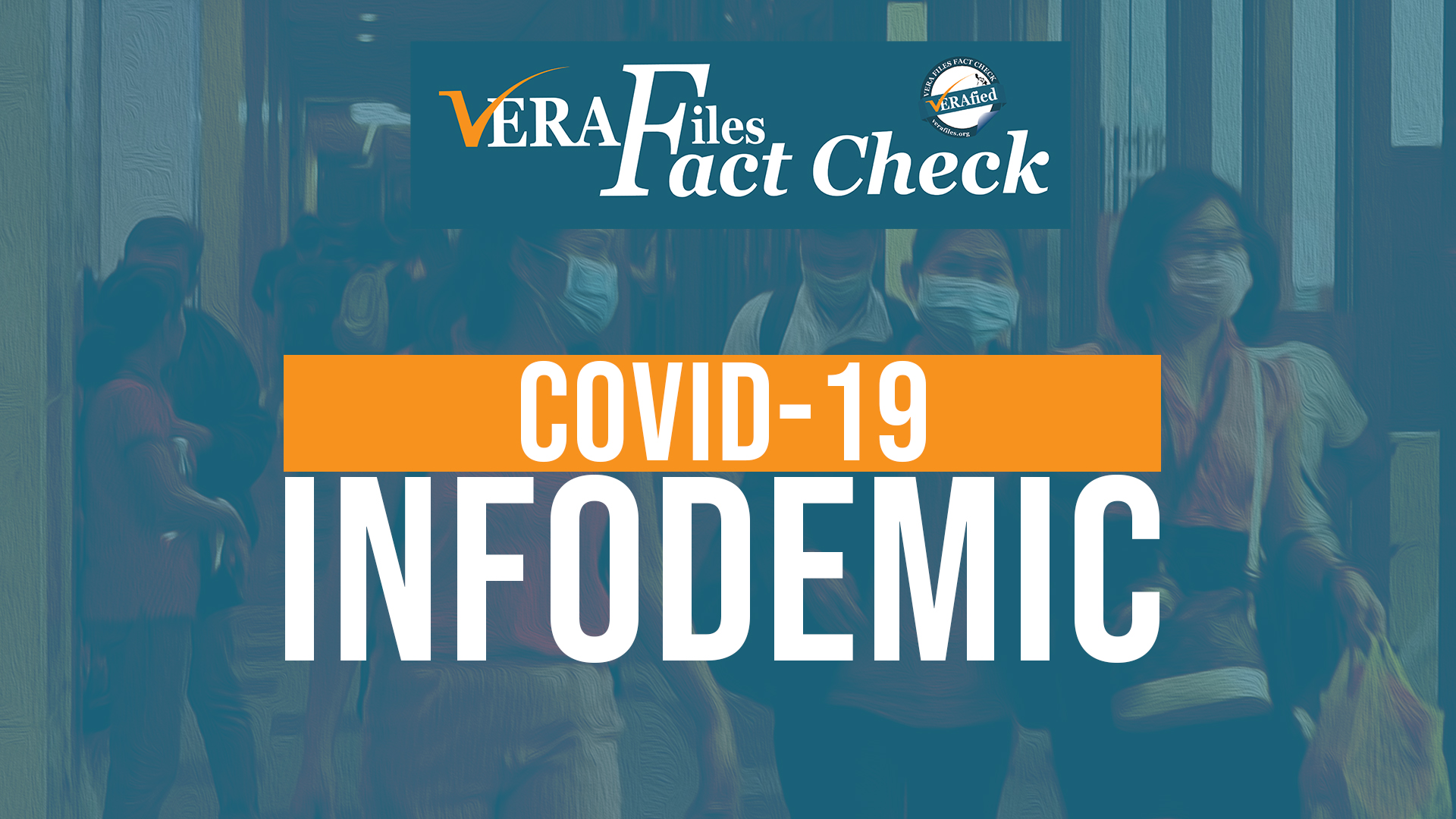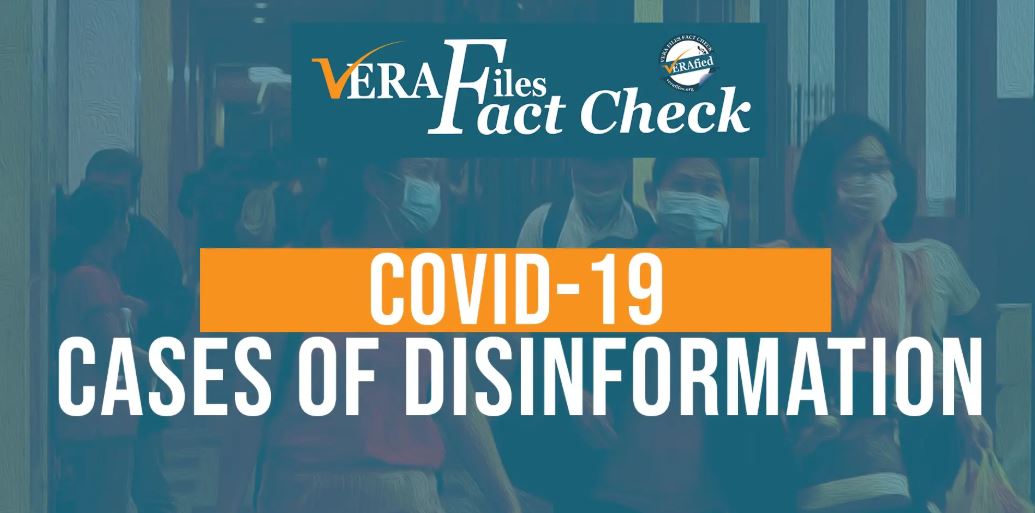Early in the pages of Dr. Joseph Adrian L. Buensalido’s Mikrobyong Maliit, Pandemyang Pasakit: Ang Tinulang Salaysay ng Pandemyang COVID-19, there is a certificate attesting that the holder or owner of the slim volume of 72 pages has lived and survived during the time of the pandemic. In Filipino it states that “I am happy I went past this grim part of history. Many died and did not see the dawn on their native land.”
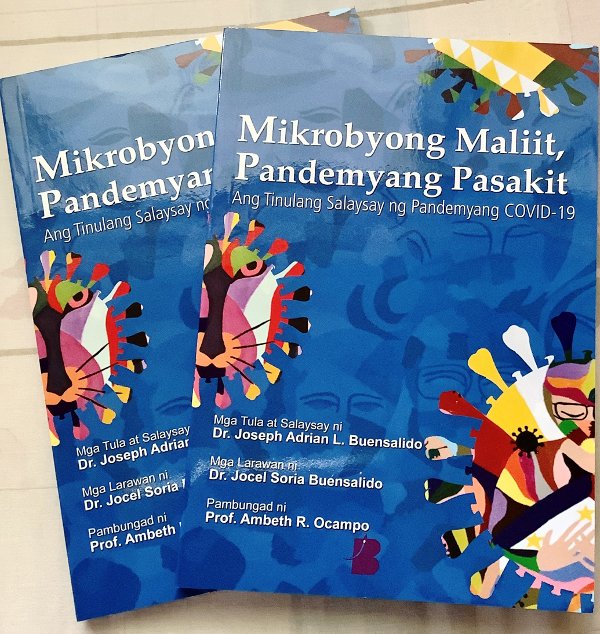
The rough translation is only by this article’s author. One has to grab hold of the book to savor and be touched by the rendering in Filipino verse how COVID-19, that small pesky virus, wrought havoc on the entire world, leaving millions of deaths since 2020.
In his foreword, Prof. Ambeth Ocampo wrote that historians of the future would be able to cull materials on the pandemic from online news and social media. But for primary sources, on top of the heap is Dr. Buensalido’s book, inspired partly by Philippine history and especially by the great physician and hero, Jose Rizal.
Buensalido, an infectious diseases specialist and clinical associate professor of medicine at the University of the Philippines-Philippine General Hospital, among other institutions he serves, even did a blackout poetry using Rizal’s “Mi Ultimo Adios,” translated into Filipino, as basis. He created a new poem entitled “Mabangis na Sakit.”
He stared COVID-19 in the face when he dealt with the passing of his colleagues due to the disease. He grieved over the deaths of these doctors: Sally Gatchalian, past president of the Philippine Society for Microbiology and Infectious Diseases; Grace Lim, whom he called “one of our heroic Emergency Room physicians who was the first line of defense in Asian Hospital during the deadly first wave of COVID-19”; Raul Jara, one of his professors during his training at PGH; and Kharen Abat-Senen, his senior who taught him when he was an intern and she was a pediatrics resident at PGH.
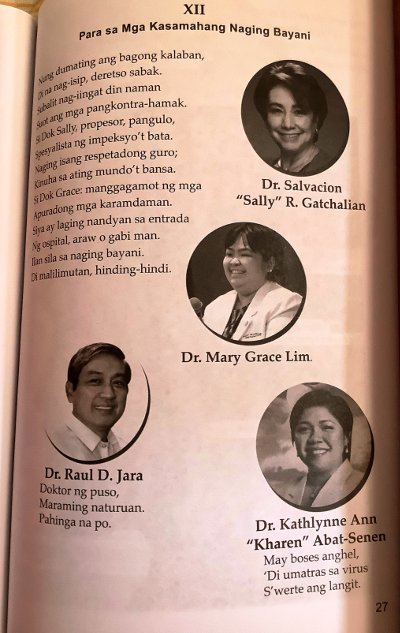
A page from the book on the frontliners who laid down their lives.
He said, “Their deaths brought feelings of sadness, chills, even a jolt. Their passing made the threat of COVID-19 more real. It’s easy to get lost in the day-to-day work of waking up, wearing the personal protective equipment (PPE), seeing patients to diagnose and treat them, then removing the PPE at the end of the day or night. But their deaths reminded us that we ourselves could die from it if we slip up or become, even just slightly, careless.”
The story of how he chose medicine as his profession was to him “easy because my dad is a doctor. I idolized him while I was growing up and until now. I do not recall anyone in the family who ever got hospitalized because my dad would know what to do whenever one of us got sick. He would properly treat us early whenever we were sick, which prevented any worsening of the illness, and promoted our quick recovery.”
His unforgettable memory of father Adrian was when they were traveling to Baguio. They saw a bus slam onto an owner-type jeep. He recalled, “I saw him go into action as he assessed the injured. He prioritized a person who did not appear to be breathing so he resuscitated him promptly, and the person resumed breathing! When military rescuers arrived, he directed them on how to move the patients safely and correctly from the site of accident to the rescue vehicles. As a child and son who saw those things, I said, ‘Wow. I want to be like my father.’”
As a child, the potential writer in him made comic books on folded bond paper. He tried his hand in writing fiction in high school, then joined the school paper in medical school. He is published in scientific or medical journals and in at least three American medical textbooks. He continues to write reference articles for Medscape, described as the “leading online global destination for physicians and healthcare professionals worldwide, offering the latest medical news and expert perspectives; essential point-of-care drug and disease information; and relevant professional education and continuing medical education.”
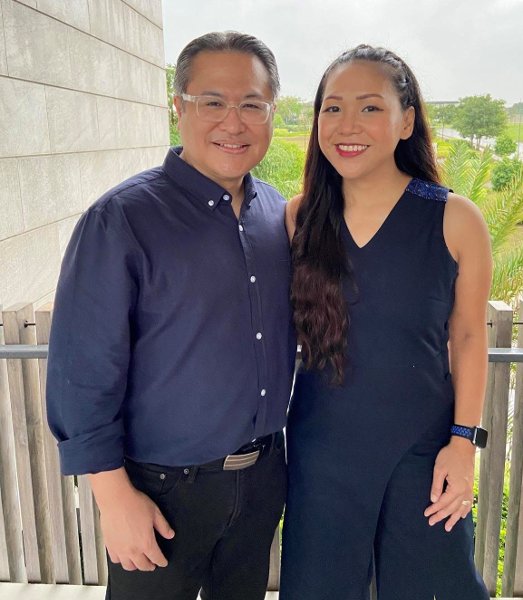
Author Dr. Joseph Adrian Buensalido and his artist collaborator, wife Dr. Jocel Soria Buensalido
He is also a lover of Philippine history. Whenever he goes to the mall, he heads for the Filipiniana section of a bookstore “because I love reading about our Philippine heroes, especially Dr. Rizal who surprised me because he had so many talents, skills. He could do much more than diagnose and treat illnesses. He was an example of someone who made use of all his God-given talents.”
As to honing his own skill in writing verses in Filipino, he credited his teachers at Don Bosco Grade School, Ateneo High School, UP Diliman and De La Salle College of Medicine for this. He said, “I started writing poems in Filipino because I was inspired by Rizal. I wanted to develop my talents like he did. But one of the knocks on Rizal was he wrote a lot in Spanish so the Filipinos during his time didn’t get to read his work directly. What he wrote did reach his fellow Filipinos, but it was the translated version already.”
He continued, “A similar problem can be noted today. Many of us, especially young kids these days, tend to prefer to speak in English. When I was in school, the teachers had to do stuff to force us to speak English. Now it’s the opposite. We have to force our kids to speak in Filipino.”
For models, he reads the history books and articles of Prof. Ocampo, the poetry of National Artist Virgilio Almario “ever since I heard his poetry reading and lecture at the US Library of Congress,” among others.
Asked how empathy for those suffering, whether from COVID or other diseases, is developed in doctors, he answered, “I teach my students to treat each patient the way you would treat your mother, father or family member. It is the best way to remember that our patients are people who are suffering from illness. Treating the person, which can be ‘to cure’ at times and ‘to care’ all the time, is more important rather than just treating a disease. This becomes even more important because COVID-19 patients need to be isolated from others, and so more ‘care’ becomes even more essential because isolation can become lonely.”
He compared how people’s lives have changed since the pandemic, remembering his grandmother “who went through World War II, when they probably had to scrounge for food. She kept food everywhere: in her bag, in her baul under her desk, in containers under her bed. Our World War was this war versus COVID-19. Because we had this pandemic, we learned the importance of hand hygiene, distancing, respiratory etiquette and other infection control strategies. When this ends, we will still benefit from these measures, even if not necessarily performed to the same degree.”
Buensalido is crossing his fingers that there won’t be another surge, saying, “I am more optimistic than others. Because a lot of people have received the COVID-19 vaccine and even got boosted, we have a significant amount of vaccine-associated immunity. Even the Omicron surge helped. Because Omicron was so contagious, it added greatly to disease-associated immunity. Those two types of immunity have given our country good protection.”
He explained, “It was fortunate that Omicron resulted in mostly non-serious illness so even if it was infectious, people who got infected mostly had mild disease. If it behaved like the previous variants or even the original virus, our January surge would have resulted in lots of serious cases and death. Despite many rallies, increasing numbers of people in public places, restaurants and offices, so far we have not detected an increase in cases in the hospitals or the clinics.”
He assured that “there is a chance that COVID-19 might become a seasonal, mild (Omicron-like) illness. That would be all right as long as it is not as life-threatening as the earlier variants. But I am hoping that we can end the pandemic. How? By maintaining our masking, distancing and performing hand hygiene before touching our eyes, nose and mouth while the pandemic has not been declared ended. Let us not allow the virus to stage a comeback.”
His book targets “anyone who has lived through the pandemic, whether healthcare workers, frontliners, those who suffered through the hard lockdowns, those who waited for the arrival of the vaccines, those who got the vaccines, those who had to sift through fake news to get to the real news, families who did their best to keep the SARS-CoV-2 virus out of their households, those who had COVID-19 and survived and even those who lost loved ones because of the virus.”
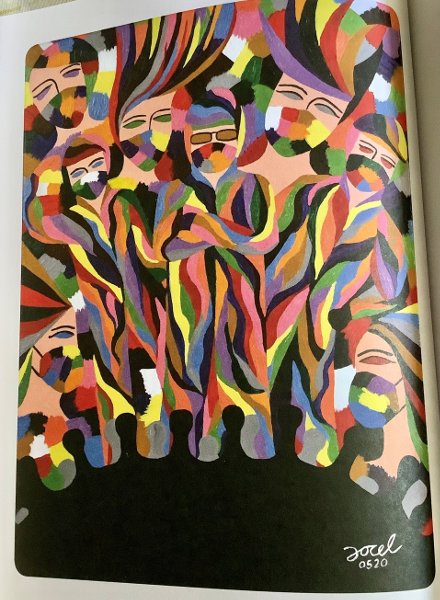
Victorious, an acrylic work by Jocel Soria Buensalido illustrating the book
This book is illustrated by his wife, Dr. Jocel Soria Buensalido, a skin specialist, and published by Buensalido Public Relations Agency. It is truly a worthwhile memento of this time in history.
Copies can be ordered through these options: Facebook Messenger–@mikrobyongmaliitbook ; text 0917- 533-1201; or email buensalidobooks@gmail.com.

